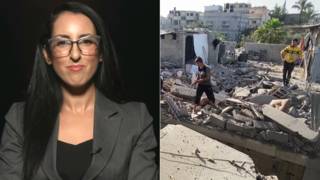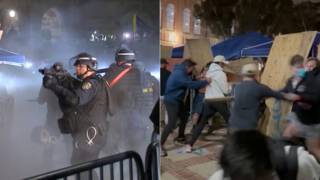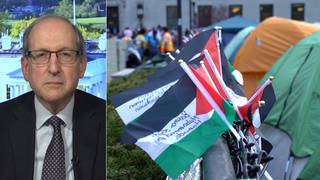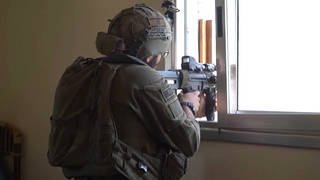In Sudan, both sides of the warring military factions have accused the other of violating an extended 72-hour ceasefire as fighting continues in Khartoum and elsewhere on the 17th day of the conflict. The United Nations is warning Sudan is at a humanitarian “breaking point” as it deploys its top humanitarian diplomat, who called the “scale and speed” of the crisis “unprecedented.” The U.N. also warned of an escalation of violence in Sudan’s West Darfur region. Meanwhile, U.N. agencies say they’ve begun helping refugees arriving at the Egyptian border, while aid workers in Chad say urgent assistance is needed for refugees there.
Brice Wanignon Degla: “If we fail to act now, it will be too late. The rainy season is coming in a few weeks, and if we don’t provide any assistance to the people, the road will be blocked, and all the refugees here will be stuck.”
People in the capital Khartoum are facing the dangers of war while grappling with worsening shortages of essentials.
Heba: “We hear the sounds of artillery from this side. It can fall on the street in the front or the one behind. We have to sleep on the floor. There is no water or electricity. There is no food. All shops are closed, and the ones which are open sell products at expensive prices. We hardly eat what is enough for us. We only eat one meal per day so that the little food supplies we have are enough.”










